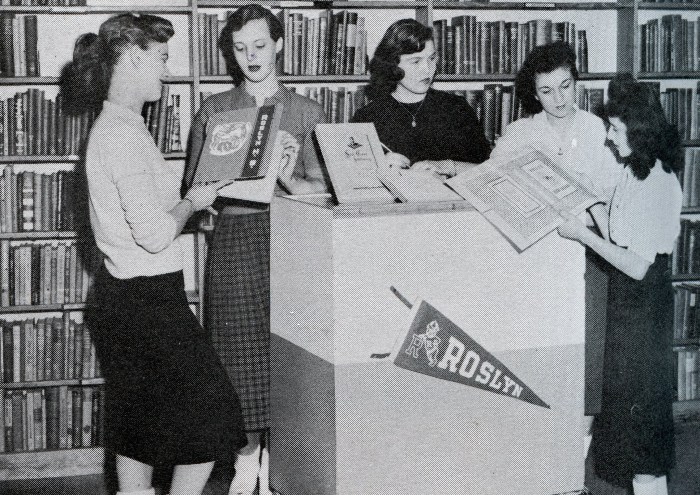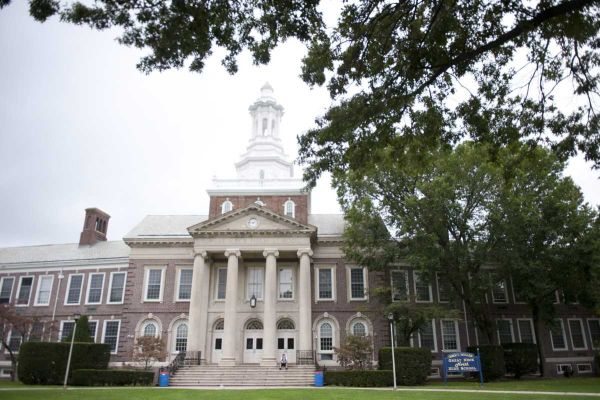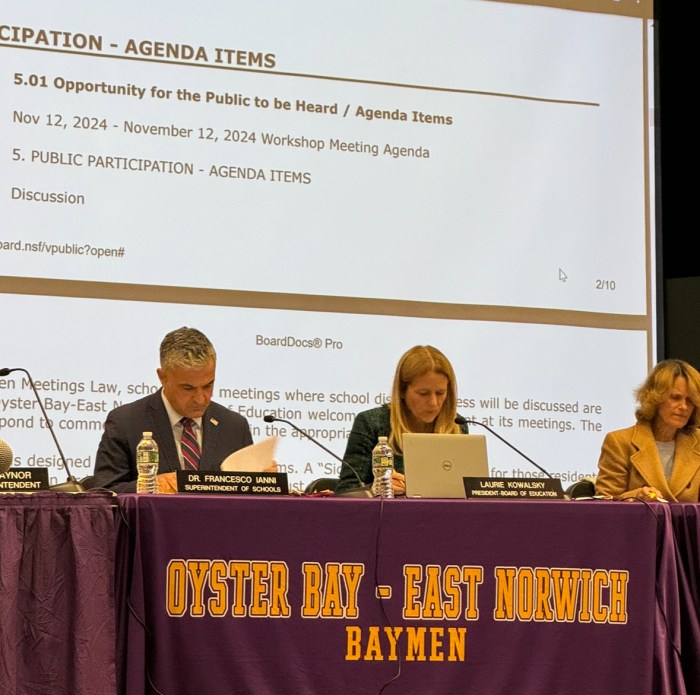 The Great Neck Public Schools Board of Education has revised its Policy on Computer Network and Internet Acceptable Use for Students and Staff. After quite a long time of research and committee and public discussions, the school board’s policy committee developed a policy that was received quite favorably by students and faculty alike. There is a greater amount of freedom and flexibility regarding Internet use for faculty and older students.
The Great Neck Public Schools Board of Education has revised its Policy on Computer Network and Internet Acceptable Use for Students and Staff. After quite a long time of research and committee and public discussions, the school board’s policy committee developed a policy that was received quite favorably by students and faculty alike. There is a greater amount of freedom and flexibility regarding Internet use for faculty and older students.
The revision addresses the “ever-evolving” ways in which technology is used to work and communicate and its prevalence in everyday lives, while still recognizing the need to protect the safety of the district’s students through compliance with the Children’s Online Privacy Protection Act (COPPA) and the Children’s Internet Protection ACT (CIPA).” And, as well, addresses the need to protect the integrity of the district’s computer network.
To that end, policy changes include: enabling the extension of the district-issued email accounts to students; customized filtering based on grade level; read-only utilization of Facebook; and personal use of the district network for staff, before and after the regular school day.
In addition, the Wireless VLAN Authorization Form has been revised to notify staff that use personal electronic devices connected by FLAN to the district network that information about their device may be logged.
This revised policy starts with: “It is the philosophy of the Great Neck Public Schools that the integration of technology with the curriculum is an essential part of instruction. At the same time, there is an inherent responsibility on the part of users to conduct themselves in an appropriate and considerate manner when using the medium. The Internet contains a rich array of education contents as well as information that is illegal or inappropriate for children. Therefore, Internet resources are filtered and student use is monitored and supervised by staff. However, the security, accuracy and quality of information that is available through our network cannot be guaranteed. While the guidelines that follow have been developed to ensure responsible use of our computer network and the Internet, we respect each family’s right to deny independent Internet use by their children in school.”
The policy also includes sections on: parent/guardian option; Internet filtering system; personal security issues; user guidelines; ethical and legal considerations; consequences of violations; and staff responsibilities.
When the policy revision was first introduced, Board of Education President Barbara Berkowitz noted how much work had gone into this revision. Then the revision was put on “hold” while controversial student/school district issues were researched and discussed. Students had complained about limited available research due to filters in the system. To that end, the proposal includes a lowered filter level for high school students.
A first reading was introduced at the October school board meeting and reviewed a second time at the November meeting. Having had at least three hearings, the revision was approved at the December meeting.





























